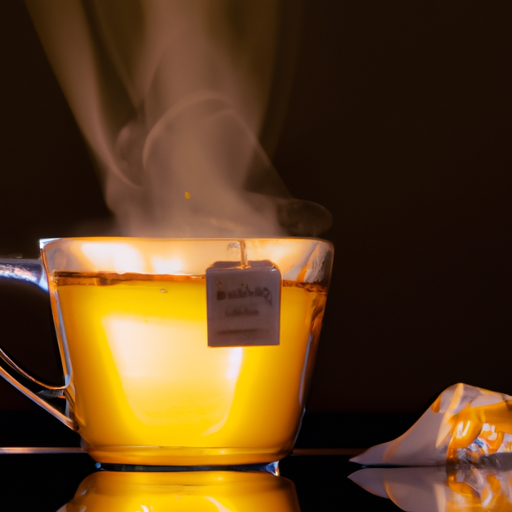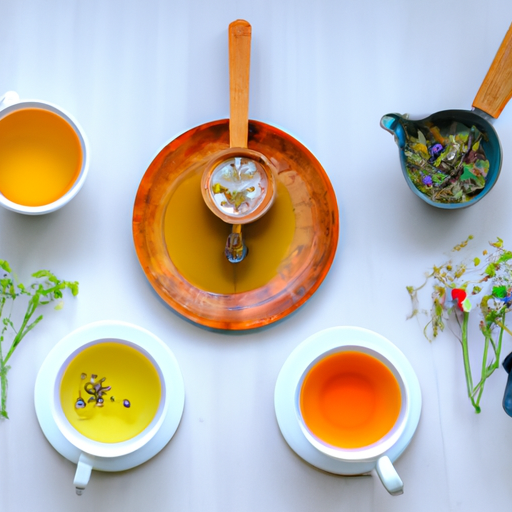Have you ever had the unpleasant experience of a urinary tract infection (UTI)? It can be a constant struggle, with symptoms such as frequent urination, burning, and pain. As someone who has faced UTIs before, I empathize with the search for relief. This leads me to ponder: is it safe to drink herbal tea when dealing with a UTI?
When it comes to finding natural remedies for UTIs, herbal tea often comes up as a popular choice. But before we dive into its potential benefits, it’s important to understand the effect of herbal tea on UTIs and consider the type of tea you’re consuming.
In this article, we will discuss the potential benefits and risks of drinking herbal tea for UTIs, as well as other home remedies that may provide relief. However, it’s crucial to consult with a healthcare professional to ensure the best course of action for your specific situation.
Now, let’s explore the world of herbal tea and its potential role in managing UTIs.
Key Takeaways
- Herbal tea, such as chamomile and cranberry tea, may have potential benefits for UTIs due to their antimicrobial properties.
- Cranberry tea may help prevent UTIs by inhibiting bacteria from attaching to the urinary tract.
- Herbal teas alone may not be sufficient to treat a UTI and should not replace medical treatment.
- Drinking herbal tea when you have a UTI may have potential risks, such as diuretic effects and interactions with medications.
Understand the Effect of Herbal Tea on UTIs
Curious about the effects of herbal tea on UTIs? Let’s find out if sipping on some chamomile or cranberry tea can help!
When it comes to herbal tea and UTIs, it’s important to consider the potential side effects and the effectiveness of these teas. While herbal teas like chamomile and cranberry have been traditionally used to support urinary tract health, scientific evidence on their effectiveness is limited.
Some studies suggest that cranberry tea may help prevent UTIs by preventing bacteria from attaching to the urinary tract, but more research is needed to confirm these findings.
It’s also important to note that herbal teas can have potential side effects and may interact with certain medications. Therefore, it’s always a good idea to consult with a healthcare professional before incorporating herbal teas into your UTI management.
Now, let’s consider the type of herbal tea that may be most beneficial for UTIs.
Consider the Type of Herbal Tea
When it comes to selecting the right herbal infusion for a UTI, be mindful of the specific variety you choose. Not all herbal teas are created equal when it comes to UTI prevention. While some herbal teas can offer potential benefits, others may not be as effective.
It is important to consider herbal tea alternatives that have shown evidence of promoting urinary tract health. For example, cranberry tea has been studied for its potential to prevent UTIs by inhibiting the adhesion of bacteria to the urinary tract lining. Other herbal teas, such as dandelion root tea and green tea, may also have antibacterial properties that could be beneficial.
However, it is important to note that herbal teas alone may not be enough to treat a UTI. If you are experiencing symptoms of a UTI, it’s always best to consult with a healthcare professional for proper diagnosis and treatment.
Consult with a Healthcare Professional
Seeking advice from a healthcare professional is crucial for effective diagnosis and treatment options. When it comes to drinking herbal tea for a UTI, it is important to consult with a medical professional before incorporating it into your routine. They can provide personalized guidance based on your specific condition and medical history. While some herbal teas have properties that may help alleviate UTI symptoms, others can potentially worsen the condition or interact with medications. To make an informed decision, it is essential to discuss your options with a healthcare provider. They can offer recommendations on which herbal teas are safe to consume and in what quantities. By having a consultation and seeking medical advice, you can ensure that you are taking the appropriate steps towards managing your UTI effectively. Transitioning into the subsequent section about ‘hydration and fluid intake,’ it is important to also consider the role of fluids in UTI management.
Hydration and Fluid Intake
Staying well-hydrated is essential for managing a urinary tract infection (UTI), as it helps to flush out bacteria and promote healing. UTI prevention involves maintaining a good fluid intake, and herbal tea can be a natural remedy that contributes to hydration.
While there’s limited scientific evidence specifically linking herbal tea to UTI prevention, certain herbal teas may offer potential benefits. For example, dandelion tea has diuretic properties that can increase urine production and potentially flush out bacteria. Additionally, chamomile tea has anti-inflammatory properties that may help reduce UTI symptoms.
It’s important to note that herbal teas shouldn’t replace medical treatment for UTIs, and consulting with a healthcare professional is crucial for proper diagnosis and treatment.
Moving forward, let’s explore the potential benefits of herbal tea for UTIs.
Potential Benefits of Herbal Tea for UTIs
To reap the potential benefits of herbal tea for UTIs, it’s crucial to choose varieties that are high in antioxidants, such as hibiscus or green tea. Studies have shown that antioxidants can help strengthen the immune system and reduce the risk of infections. These antioxidants can also help fight off the bacteria that cause UTIs.
Additionally, herbal teas like chamomile and cranberry have been traditionally used as alternative remedies for UTIs due to their potential antimicrobial properties. However, it’s important to note that while herbal teas may offer some benefits, they shouldn’t be used as a substitute for medical treatment. It’s always best to consult with a healthcare professional for proper diagnosis and treatment.
In the next section, we’ll explore the potential risks of herbal tea for UTIs.
Potential Risks of Herbal Tea for UTIs
While herbal teas may offer potential benefits for UTIs, it’s important to be aware of the potential risks they may pose.
While some herbal teas have antimicrobial properties that can help fight off bacteria causing UTIs, others may have diuretic effects, which can worsen symptoms by increasing urine production and irritating the urinary tract.
Additionally, certain herbal teas can interact with medications or cause allergic reactions in some individuals. It is crucial to consult with a healthcare professional before incorporating herbal teas into your UTI treatment plan, especially if you have any underlying health conditions or are taking other medications. They can provide guidance on the most effective and safe options for your specific situation.
Moving on to other home remedies for UTI relief, there are several options that can complement or be used alongside herbal teas.
Other Home Remedies for UTI Relief
Now that we’ve discussed the potential risks of herbal tea for UTIs, let’s explore some other home remedies that can provide relief.
As someone who’s experienced the discomfort of a UTI, I understand the importance of finding natural remedies to alleviate symptoms and prevent future infections.
There are several options you can try at home to complement your treatment plan. First, staying hydrated is crucial for flushing out bacteria. Drinking plenty of water can help dilute urine and promote frequent urination.
Additionally, cranberry juice or supplements may help prevent UTIs by preventing bacteria from sticking to the urinary tract walls.
It’s also important to practice good hygiene, urinate before and after sexual activity, and avoid using irritating feminine products.
By incorporating these natural remedies and prevention tips into your routine, you may find some much-needed relief from UTIs.
- Home remedies for UTI relief:
- Staying hydrated
- Cranberry juice or supplements.
Frequently Asked Questions
Can I drink any type of herbal tea for UTI relief?
Drinking herbal tea for UTI relief can provide numerous benefits. It can help soothe urinary symptoms, reduce inflammation, and promote overall urinary tract health. However, it’s important to consult with a healthcare professional for proper treatment.
How much herbal tea should I drink daily when I have a UTI?
I recommend drinking 2-3 cups of herbal tea daily for UTI relief. Herbal tea benefits urinary tract health by promoting hydration and potentially reducing inflammation. However, consult a healthcare professional for personalized advice.
Are there any specific herbal teas that I should avoid when I have a UTI?
When dealing with a UTI, it is important to choose herbal teas that have proven benefits for UTIs, such as cranberry and dandelion tea, while avoiding irritants like caffeine and alcohol.
Can drinking herbal tea alone cure a UTI?
Drinking herbal tea alone is unlikely to cure a UTI. While some herbal teas may have antibacterial properties, they should not be relied upon as the sole treatment. It’s best to consult a healthcare professional for effective UTI treatment.
Are there any herbal teas that can worsen UTI symptoms?
There are no herbal teas that specifically worsen UTI symptoms. However, it’s important to note that not all herbal teas have the same benefits. It’s always a good idea to consult a healthcare professional for herbal tea alternatives.
Conclusion
In conclusion, herbal tea can be a beneficial addition to your UTI treatment plan, but it’s important to understand its effects and choose the right type of tea. Consulting with a healthcare professional is crucial to ensure you’re using the right herbal tea and to monitor your progress.
Additionally, staying hydrated and maintaining a healthy fluid intake is key in managing UTIs. While herbal tea may offer potential benefits, it’s essential to weigh the potential risks and consider other home remedies as well.
So, why not give herbal tea a try and see if it can help alleviate your UTI symptoms?










